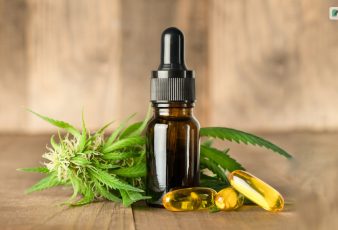Understanding the difference between hydration and nutrition is key in the context of skin health.
You might know that the first line of defense against environmental stressors is your skin. Besides, it is also the largest organ in your body. Hence, you have to focus on your health and skin.
However, to maintain the health and appearance of your skin, it’s important to address its hydration and nutritional needs. We will understand them all in this article.
The Role of Hydration in Skin Health

Hydration is the water content in your skin cells. The presence of water content helps to keep the skin plump, elastic, and smooth.
If you are properly hydrated, you can avoid issues like itching and flaking. Simultaneously, you can help maintain a youthful, dewy complexion.
Hence, besides healthy food and healthy skin, you also have to focus on hydration.
Many factors impact your skin’s hydration levels. However, one crucial element is topical products, especially when we consider protection against the sun.
Understanding Mineral Sunscreens In Skin Care
Experts find the mineral sunscreens highly effective in the protection of your skin. The natural ingredients in mineral sunscreens, coupled with the ability to provide a physical barrier to UV rays, can be highly effective in protecting your skin.
Protection becomes paramount in health and skin. Mineral sunscreens are deemed highly effective, especially for those seeking a physical shield against the harsh impacts of sunlight.
These sunscreens use minerals to reflect UV radiation away from the skin. This is why sunscreens are an excellent way to protect your skin and preserve its moisture.
Moreover, they contribute positively to maintaining your skin’s hydration levels.
Nutrition and Skin: The Vital Link
Nutritious food helps you focus on feeding the skin from the inside out. Different research studies have been conducted to find the link between optimum nutrition and skin health.
To maintain your skin health, you have to select foods rich in Vitamins and minerals. Besides, you can not ignore foods that are rich in antioxidants and fatty acids. These nutrients take care of your skin health.
These nutritious components focus on cellular repair and, fight inflammation. Also, they protect your skin from oxidative damage.
Remember, your food consumption directly relates to skin health. Hence, consuming a balanced diet rich in vegetables, fruits lean proteins, and healthy fats can provide enough nutrition to your skin.
Hence, to bolster your skin’s health, you have to be choosy with your food choices. Healthy skin acts as a shield, so you have to focus on its natural glow. A diet rich in nutritious content is better for your skin. It is the arm to combat the onslaughts from our environment. Hence, focus on natural healing and stay healthy.
Enhancing Skin Health Through Water Intake

Hydration is not about the application of products. It is crucial to hydrate from within.
Drinking enough water all day can immensely improve skin hydration. Adequate water helps flush out toxins from the body and can improve blood circulation.
Besides they aid in delivering nutrients to the skin cells. The water intake routine ensures your skin is hydrated and functional. We recommend you drink at least eight glasses of water a day. It can help you maintain optimal hydration, and ultimately, it supports your overall health.
The Importance of Fatty Acids in Skin Nutrition
When discussing health and skin and the role of nutrition, one must focus on the importance of Fatty Acids.
Fatty acids, particularly omega-3 and omega-6, are essential for keeping skin healthy.
Foods like nuts, fish, and flaxseeds are rich in fatty acids. They help strengthen the skin’s lipid barrier, retaining moisture and successfully resisting irritants.
Regular intake of these healthy fats can successfully bring down skin redness and prevent dry, flaky skin. All these developments help make a smooth and more resilient complexion.
Daily Practices to Support Skin Health
In addition to focusing on hydration and nutrition, daily skin care practices play a significant role in maintaining skin health.
Gentle cleansing, regular moisturizing, and the application of sunscreen protect the skin from daily stressors.
Moreover, avoiding harsh skincare products and minimizing exposure to pollutants and chemicals can prevent unnecessary damage and irritation.
Some Nutritious Food For Your Skin
General health and skin health are the same. Hence, you must look to select the right food to keep your skin healthy.
Different research studies have found a link between a healthy diet and skin health.
For instance, a group of Australian researchers showed that a GI diet brings down symptoms of acne and also improves the quality of your skin. Nutritious and healthy food has a great effect on your skin, and this is why you must be alert and aware regarding the selection of food.
In this section, we discuss some of the foods that can take care of your skin health.
Barley
Australian research has shown that the Low GI diet, which contains whole grains like Barley, helps relieve acne and also improves your skin health.
Not only this, Barley also provides the antioxidant mineral Selenium. Moreover, it has a good level of several other vitamins and minerals.
All these play a positive role in the growth and development of healthy skin, nails, and hair.
Tea
Tea contains different antioxidants. These have the potential for Anti-aging benefits, which is why you must drink tea regularly.
A study says that green tea helps rejuvenate skin cells. Tannins in tea can reduce the absorption of minerals in food. Hence, you must try to drink your tea between meals.
Zinc Based Food
Remember, the outer layer of your skin has five times more zinc than the layer under it. Zind provides nourishment to heal your skin after an injury and keeps your cell walls stable to maintain your skin health.
Zinc may also protect the skin from UV damage. It behaves like the other metals in your body, like copper and iron. You can say that Zinc acts as an antioxidant. This is why you must focus on foods with rich Zinc content.
Salmon
Oily fish, like Salmon, are highly rich in essential oils. These help reduce inflammation and provide essential nourishment to your skin.
To reap the benefits, you need to consume the fish at least two times a week. Other oily fishes besides Salmon include mackerel, trout, and anchovies.
Dark Green Leafy Vegetables
The dark green leafy vegetables are a must for anti-aging power. The level of anti-oxidants in these leafy vegetables is the dark green color.
These vegetables fight the free radicals that cause severe damage to your cells. Hence, you must feel your skin from the inside out.
Include leafy green vegetables in your diet daily. Kale, silverbeet, watercress, Asian greens, and dark green cabbages have their nutritious value to protect your skin.
Conclusion
Understanding the dual needs of hydration and nutrition is key to achieving and maintaining healthy skin. By combining the right topical treatments with a diet rich in essential nutrients and adequate water intake, you can ensure that your skin remains healthy, resilient, and radiant. Embrace a holistic skincare routine that addresses both external and internal factors to keep your skin at its best.
Read Also:





























